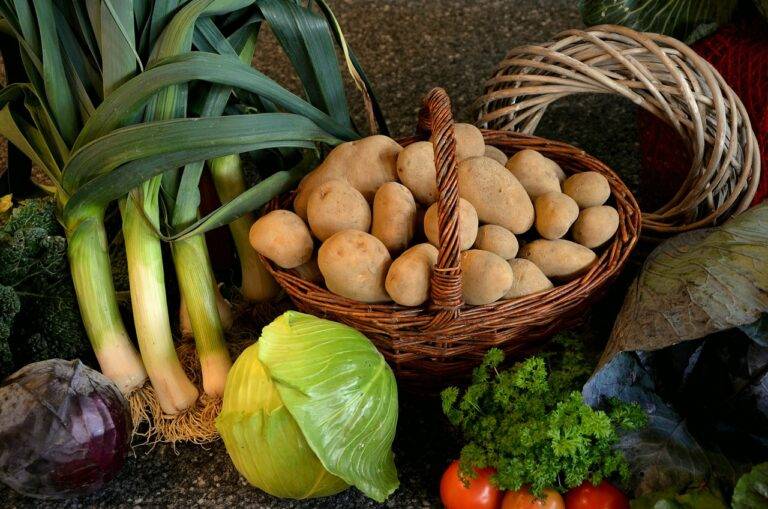The Role of Food in Building Resilient Communities in Times of Crisis
Local food systems play a crucial role in fostering sustainable agriculture practices and reducing the carbon footprint associated with long-distance food transport. By supporting local farmers and producers, communities can ensure the availability of fresh, seasonal produce while promoting economic growth within their region. Additionally, local food systems contribute to preserving biodiversity and maintaining local food traditions, thus enriching the cultural fabric of communities.
Furthermore, local food systems have been shown to enhance food security by increasing access to nutritious foods, particularly in underserved areas. By shortening the supply chain and connecting consumers directly with producers, local food systems empower communities to have greater control over their food sources and reduce dependency on external markets. Additionally, by promoting the consumption of locally grown foods, these systems can improve public health outcomes and support sustainable livelihoods for small-scale farmers.
Food Security and Community Well-Being
One of the key ways to enhance food security and promote community well-being is by supporting local food systems. When communities prioritize sourcing food from local farmers and producers, they not only ensure a more sustainable and resilient food supply but also contribute to the overall health and vitality of the community. By buying local, residents are supporting small-scale farmers and businesses, which in turn helps to strengthen the local economy and create a sense of interconnectedness within the community.
Moreover, local food systems often promote healthier eating habits by providing access to fresh, seasonal produce that is harvested at its peak ripeness. This can lead to improved nutrition outcomes for community members, reducing the risk of diet-related health issues such as obesity and chronic diseases. Additionally, by fostering relationships between farmers and consumers, local food systems can help build a sense of trust and transparency within the community, creating a stronger bond between those who grow the food and those who consume it.
Supporting Local Farmers and Producers
In today’s interconnected world, supporting local farmers and producers is crucial for fostering sustainable communities. By purchasing directly from these individuals, consumers not only contribute to the local economy but also help in reducing the carbon footprint associated with transporting goods over long distances. Furthermore, supporting local food systems enables farmers to receive fair compensation for their hard work and dedication to providing fresh, high-quality products.
When consumers choose to support local farmers and producers, they are investing in the long-term health and well-being of their communities. These individuals play a vital role in preserving agricultural traditions, promoting biodiversity, and maintaining the cultural heritage of a region. By purchasing local goods, consumers can establish a direct connection with the source of their food and gain a deeper appreciation for the efforts that go into producing the items they consume on a daily basis.
What is the impact of local food systems?
Local food systems help support the local economy, reduce carbon emissions from transportation, and promote food security by ensuring a steady supply of fresh produce.
How does supporting local farmers and producers contribute to food security?
By purchasing from local farmers and producers, we are helping to create a more resilient and self-sufficient food system that can better withstand disruptions and ensure access to nutritious food for all community members.
How does supporting local farmers and producers benefit community well-being?
Supporting local farmers and producers helps to strengthen community connections, promote sustainable agricultural practices, and preserve local food traditions, all of which contribute to a thriving and healthy community.
What can individuals do to support local farmers and producers?
Individuals can support local farmers and producers by shopping at farmers markets, joining community supported agriculture (CSA) programs, and advocating for policies that promote local food production and distribution.







